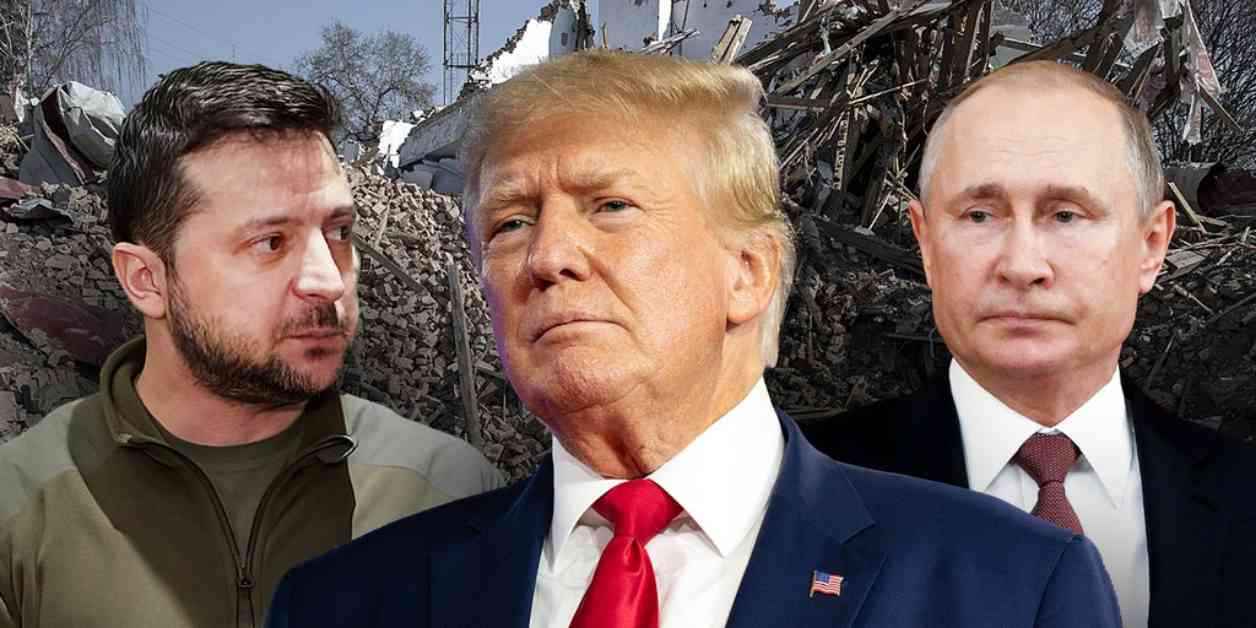President Trump is facing mounting frustrations with Ukrainian President Zelenskyy as pressure intensifies to reach a peace deal between Ukraine and Russia. The White House revealed that National Security Advisor Mike Waltz acknowledged Trump’s dwindling patience with Zelenskyy during discussions with the U.S. Special Envoy for Ukraine and Russia, Keith Kellogg, and Ukrainian officials. The focus of these talks was to help Kyiv grasp the necessity of putting an end to the ongoing conflict.
Waltz highlighted Trump’s growing frustration with Zelenskyy, emphasizing the missed opportunities for collaboration. He expressed hope that Zelenskyy would soon come to the table and engage in productive dialogue to facilitate peace. Waltz underscored the importance of ending the war for both Russia and the American people, stressing the urgency of conveying this message to Zelenskyy.
Vice President JD Vance defended the Trump administration’s engagement with Russian officials in Saudi Arabia, despite Ukraine’s exclusion from these meetings. Vance emphasized the significance of communication with all parties involved in the conflict to pave the way for a resolution. He expressed optimism about the potential for peace in Europe after years of turmoil.
In the midst of escalating tensions between Trump and Zelenskyy, the U.S. has been actively engaging with Ukrainian officials to explore avenues for a peace agreement. Kellogg reiterated the U.S.’s commitment to ending the war and establishing sustainable peace in the region. The renewed efforts to push Ukraine towards a deal followed a series of heated exchanges between Trump and Zelenskyy, culminating in mutual accusations and insults.
### Negotiations in Riyadh: A Step Towards Peace
Secretary of State Marco Rubio, along with Special Envoy to the Middle East Steve Witkoff and Waltz, met with Russian officials in Riyadh, Saudi Arabia, to discuss strategies for ending the conflict in Ukraine. Notably, Zelenskyy expressed dissatisfaction with Ukraine’s exclusion from the meeting, emphasizing the importance of Kyiv’s involvement in any peace negotiations.
The U.S. has shown a willingness to consider some of Russia’s demands for a peace agreement, with Trump acknowledging Russia’s territorial gains in Ukraine. This shift in approach raised concerns about potential concessions that Ukraine might be forced to make. Critics warned that accommodating Russia’s demands could embolden Putin to seek further advantages.
### The Challenge of Holding Elections in Ukraine
One key condition for Russia to agree to a peace deal is the prospect of holding elections in Ukraine. Zelenskyy, whose term was supposed to end a year prior, faces legal constraints due to martial law, which prohibits elections. The U.S. has aligned itself with the idea of conducting elections in Ukraine, despite the challenges posed by the country’s current political landscape.
As external pressure mounts on Ukraine to make concessions, former Trump administration officials like K.T. McFarland have raised questions about Zelenskyy’s options. McFarland pointed out the necessity of pursuing diplomatic solutions, emphasizing the long-term security implications for Ukraine. Zelenskyy’s decisions in the coming days will have far-reaching consequences for the region’s stability.
In conclusion, the evolving dynamics between Trump, Zelenskyy, and Russia underscore the complexities of international diplomacy and conflict resolution. As stakeholders navigate the delicate balance of power and interests, the quest for peace in Ukraine remains a pressing challenge that demands strategic engagement and sustained efforts from all parties involved.


